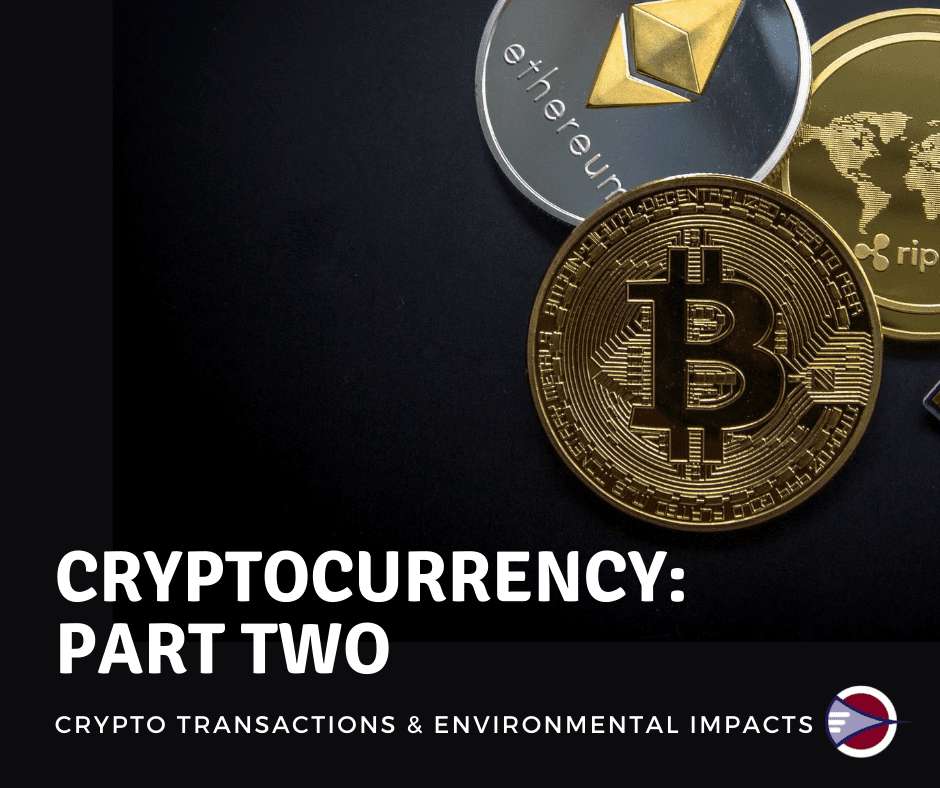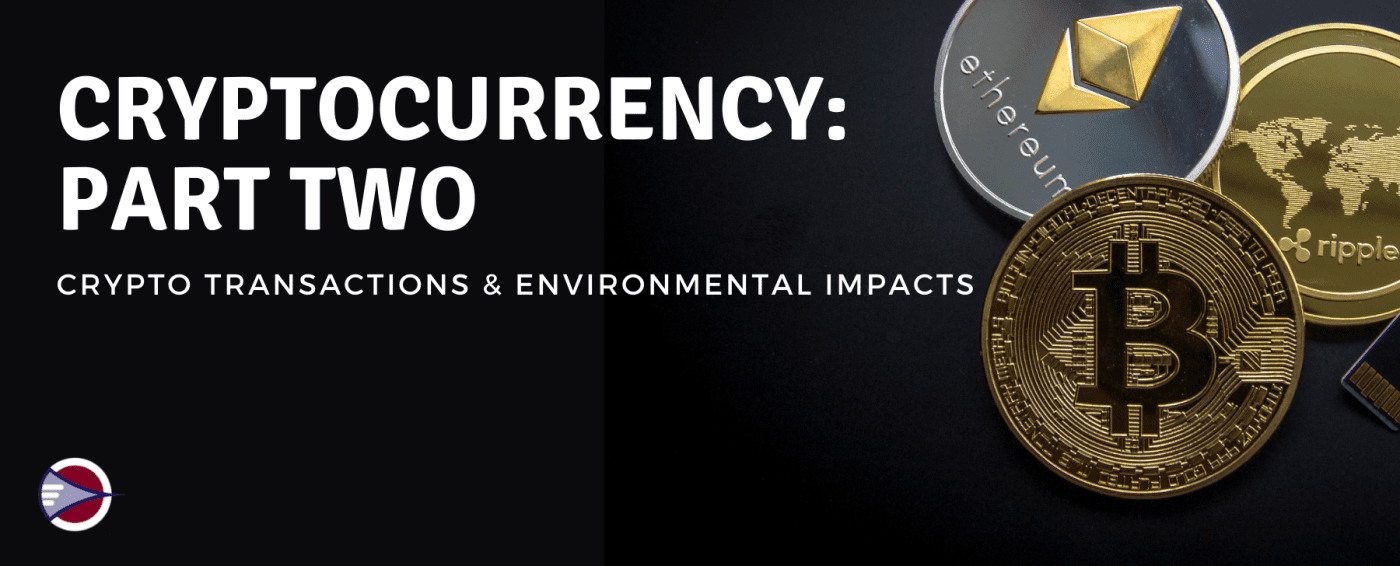I’ve explained the basics of Cryptocurrency in the last article and the tax implications for Australian residents and businesses. Now I will go in-depth about Crypto transactions and the types of taxes you may face when transacting with Crypto, crypto mining basics, and the impacts crypto mining has on the environment.
Transacting with Cryptocurrency
When a transaction is a Capital Gain
If you invest in Cryptocurrency simply hoping that it increases in value, any gain you make from the disposal is treated as a capital gain.
Capital Gains Tax (CGT) occurs when you dispose of your Cryptocurrency. The disposal can
happen when:
- you sell or gift Cryptocurrency
- you trade or exchange Cryptocurrency (including the disposal of one Cryptocurrency for another Cryptocurrency)
- you convert Cryptocurrency to traditional currency, such as Australian dollars, or
- you obtain goods or services using Cryptocurrency.
Some or all the gain may be taxed if you make a capital gain on the disposal of Cryptocurrency.
Some capital gains or losses may be disregarded if they come from the disposal of a Cryptocurrency that is a personal use asset.
Crypto is a personal use asset if you hold it or use it mainly to purchase items for personal use or consumption.
If Cryptocurrency is acquired and used within a short period to purchase items for personal use or consumption, the Crypto is more likely to be a personal use asset.
The appropriate time for working out if an asset is a personal use asset is at the time of its disposal.
Except in rare situations, the Crypto will not be a personal use asset.
When a transaction is an ordinary income
There are situations where a Cryptocurrency transaction or series of transactions can give rise to ordinary income if:
- you went into the transaction intending to make a profit, and
- the transaction is part of a business operation or commercial in character.
Relevant considerations for working out whether a transaction has such a character include:
- the nature of the entity undertaking the transaction
- the nature and scale of any other activities conducted by the entity
- the amount of money involved in the trade and the scale of the profit sought or obtained
- the nature, scale and complexity of the transaction
- the amount of time which the transaction occurs
- whether the Cryptocurrency has had any other use, other than as an object of trade, for example, is it used to exchange or buy services only available on the blockchain?
- whether there is the necessary profit-making intention and business or commercial character of the transaction will depend on each case’s particular facts and circumstances.
If the disposal is part of a business you carry on, the profits you make on disposal will be assessable as ordinary income and not as a capital gain. This includes if you carry on a business of Cryptocurrency Miner or Trader making multiple disposals frequently.
Using Cryptocurrency for business transactions
Suppose you are carrying on a business that is not a Cryptocurrency business but uses Cryptocurrency in your activities. In that case, you need to account for Cryptocurrency as you would for other assets or items used in your business.
Suppose you receive Cryptocurrency for goods or services you provide as part of your business. In that case, part of your ordinary income must include the value of the Cryptocurrency in Australian dollars. This is the same process if you receive other non-cash considerations under a barter transaction.
One way to determine the value in Australian dollars is to obtain the fair market value from a reputable Cryptocurrency exchange.
If you purchase business items using Cryptocurrency (including trading stock), you are entitled to a deduction based on the market value of the item acquired.
GST on Cryptocurrency transactions is a more complex topic, and we will discuss that in more detail in a future article.
What Is Crypto Mining?
Cryptocurrency mining is how new Cryptocurrency is entered into circulation and how the network confirms new transactions. It’s a critical aspect of the integrity of the blockchain ledger. Unfortunately, it is incredibly expensive and only sporadically rewarding. Nevertheless, mining has a magnetic appeal for many investors interested in Cryptocurrency because miners are rewarded for their work with crypto tokens.
“Mining” is performed using sophisticated hardware to solve a complex computational math problem. The first computer to find the solution to the problem is awarded the next block of Bitcoins, and the process begins again.
After all that work spent mining, miners still may not get any Bitcoin for the time and energy.
Only the first miner to get the correct answer, or closest answer, to a numeric problem receives the prize. This process is also known as PoW or Proof of Work.
How Much a Miner Earns
The rewards for mining Bitcoin are reduced by half roughly every four years.
In 2009, when Bitcoin was first mined, one block would earn you 50 BTC. In 2012, this was halved to 25 BTC. By 2016, this was halved again to 12.5 BTC. Most recently, on May 11, 2020, the reward halved again to 6.25 BTC.
Today 8 December 2021, the price of Bitcoin was about $50,378USD per Bitcoin, which means you’d earn $314,862USD (6.25 x 50,378) for completing a block.
That is the incentive to solve that complex computational problem and the costs of mining.
What about the Climate?
I find this part of the discussion the most interesting and the biggest surprise to most Cryptocurrency users.
Crypto investors are younger than stock market investors — the average age of a crypto investor is 38 years, compared to 47 years for stock market investors. Generally, the younger generation is more concerned about climate change than the older generations. Here is the surprise…
Bitcoin has a massive climate dilemma!
The Cryptocurrency uses enormous amounts of electricity. As a result, Bitcoin miners are now producing as much carbon pollution as a medium-sized nation uses in a year! That’s just amazing! Fossil fuels power most of the electricity consumed by Bitcoin, and there lies the dilemma.
Even if the electricity that powers Bitcoin and other Cryptocurrency uses Green electricity, it is still taking that Green electricity away from other electricity needs.
Bill Gates said, “Bitcoin uses more electricity per transaction than any other method known to mankind
” when he recently spoke on Clubhouse.
A new study in the journal Joule by data scientist Alex de Vries predicts that Bitcoin may soon be consuming over 200 terawatt-hours (TWh) of electricity.
A large majority of the energy used is in the “proof of work” process that creates new Bitcoins. Energy consumption is a key feature of the Bitcoin process, and without it, you lose what’s attractive about digital currency.
Bitcoin, currently @ over $50,000/BTC, is estimated to be using more energy than all of Australia used in 2020.
Feel free to read the full article here:
https://www.abc.net.au/news/2021-03-18/bitcoin-has-a-climate-problem/13210376
It’s important to note that not all Cryptocurrencies use as much energy as Bitcoin and have more energy-efficient features. Read this article if you want to know the most energy-efficient Cryptocurrencies around:
https://www.leafscore.com/blog/the-9-most-sustainable-cryptocurrencies-for-2021/
So regardless of your inclination to be a Cryptocurrency Miner or investor or just ignore it and hope it goes away, the future reality lies somewhere in the middle, with some countries like El Salvador making Bitcoin legal tender.
I think change is good!
We would love to hear your thoughts on this article and what other topics you’d love to read about from us, so follow our social pages and let us know what you think.
If you’d like any further information on how you can start trading in Cryptocurrencies, the tax implications involved or investment opportunities available to you, feel free to contact us on the form below.





